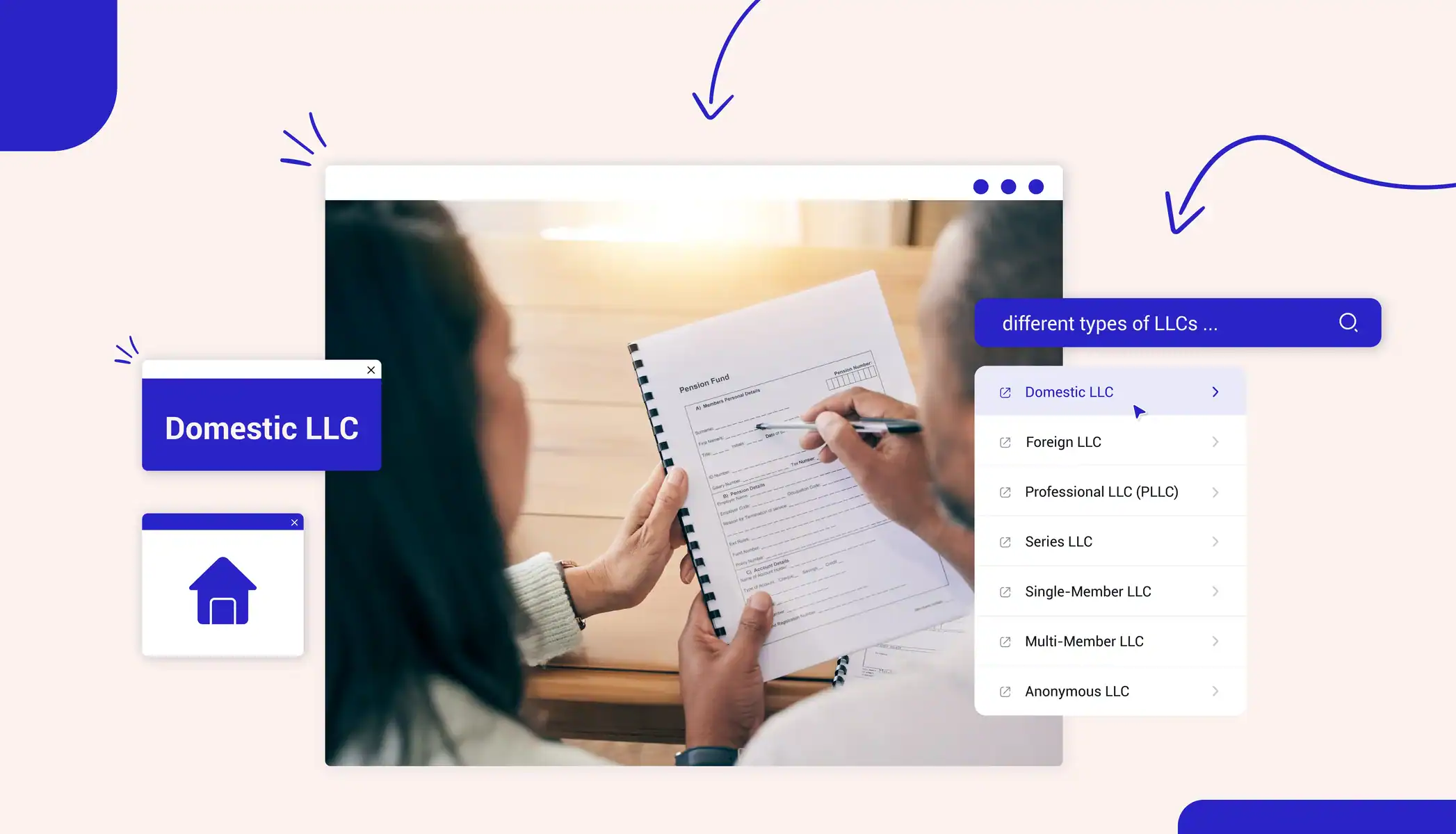What is a domestic LLC?
A domestic LLC (Limited Liability Company) is a type of LLC. It’s a business entity that’s formed and operated in the same state. For example, if you create an LLC in Texas and your business activities remain within Texas, that LLC is considered “domestic” to Texas.
This is different from a foreign LLC, which refers to an LLC operating in a different state than the one in which it was formed. If you’re deciding between the two, understanding the key differences in a domestic vs foreign LLC comparison is essential.
Why choose a domestic LLC?
Domestic LLCs are popular because they:
- Are easy and affordable to set up in most states
- Offer liability protection to their owners
- Require less paperwork than corporations
- Allow flexible management structures
- Have simpler tax options (pass-through taxation)
State-specific considerations for domestic LLCs
Some states have additional or unusual rules you should know about when forming a domestic LLC. These include:
California
- Filing Fee: $70
- Must pay an $800 minimum annual franchise tax, regardless of income or activity.
New York
- Filing Fee: $200
- Must publish a notice of formation in two newspapers for six consecutive weeks, which can cost $1,000+ depending on the county.
Arizona
- Filing Fee: $50
- Must publish Articles of Organization in an approved newspaper for three consecutive publications (unless in Maricopa or Pima County).
Nebraska
- Filing Fee: $100
- Must publish a notice of organization in a legal newspaper once a week for three weeks.
Missouri
- Filing Fee: $50 (online)
- No annual reporting or franchise taxes required.
Unique aspects of registering a domestic LLC
Forming a domestic LLC generally involves:
- Filing Articles of Organization
- Paying a filing fee
- Appointing a registered agent
However, some states add extra steps like:
- Mandatory publication (New York, Arizona, Nebraska)
- Franchise or privilege taxes (California, Texas)
These quirks can impact your decision depending on your budget and administrative preferences.
Conclusion
A domestic LLC is a practical and accessible business structure for entrepreneurs operating within a single state. While the basic formation process is similar across states, some impose unique rules like publication requirements or franchise taxes. By understanding these nuances early, you can save money, reduce stress, and stay compliant as your business grows.
FAQ
No. Once you start doing business in another state, you must register as a foreign LLC there.
No, but you must appoint a registered agent who resides or operates in that state.
You may need to dissolve the original LLC and form a new domestic LLC, or register as a foreign LLC in the new state.


